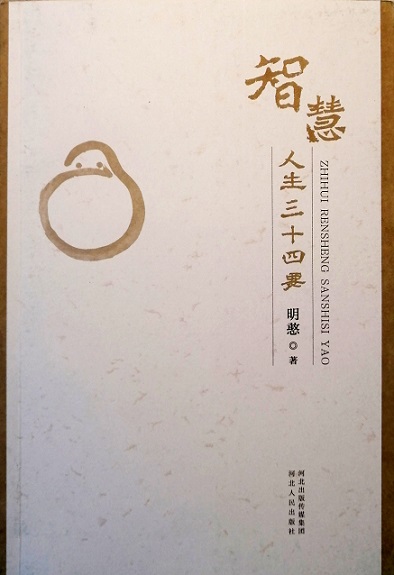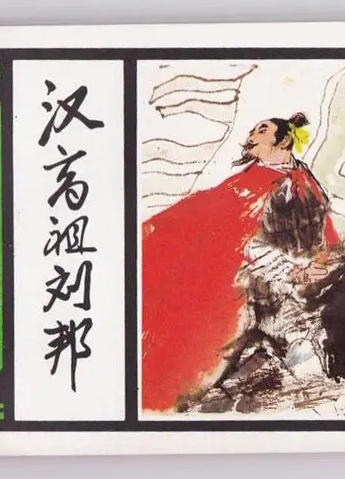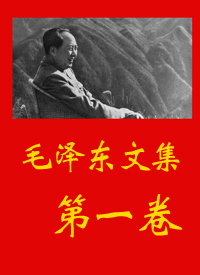“Thank you,” he said. “Next.”
“Thank you,” was the reply.
The assistant passed on to the second secretary and before leaving the room paid him four shillings for washing money, two shillings for the club, and any fines that he might have incurred2. With what he had left he went back into his department and there waited till it was time to go. Most of the men in Philip”s house were in debt with the woman who sold the sandwiches they generally ate for supper. She was a funny old thing, very fat, with a broad, red face, and black hair plastered neatly3 on each side of the forehead in the fashion shown in early pictures of Queen Victoria. She always wore a little black bonnet4 and a white apron5; her sleeves were tucked up to the elbow; she cut the sandwiches with large, dirty, greasy6 hands; and there was grease on her bodice, grease on her apron, grease on her skirt. She was called Mrs. Fletcher, but everyone addressed her as “Ma”; she was really fond of the shop assistants, whom she called her boys; she never minded giving credit towards the end of the month, and it was known that now and then she had lent someone or other a few shillings when he was in straits. She was a good woman. When they were leaving or when they came back from the holidays, the boys kissed her fat red cheek; and more than one, dismissed and unable to find another job, had got for nothing food to keep body and soul together. The boys were sensible of her large heart and repaid her with genuine affection. There was a story they liked to tell of a man who had done well for himself at Bradford, and had five shops of his own, and had come back after fifteen years and visited Ma Fletcher and given her a gold watch.
Philip found himself with eighteen shillings left out of his month”s pay. It was the first money he had ever earned in his life. It gave him none of the pride which might have been expected, but merely a feeling of dismay. The smallness of the sum emphasised the hopelessness of his position. He took fifteen shillings to Mrs. Athelny to pay back part of what he owed her, but she would not take more than half a sovereign.
“D”you know, at that rate it”ll take me eight months to settle up with you.”
“As long as Athelny”s in work I can afford to wait, and who knows, p”raps they”ll give you a rise.”
Athelny kept on saying that he would speak to the manager about Philip, it was absurd that no use should be made of his talents; but he did nothing, and Philip soon came to the conclusion that the press-agent was not a person of so much importance in the manager”s eyes as in his own. Occasionally he saw Athelny in the shop. His flamboyance8 was extinguished; and in neat, commonplace, shabby clothes he hurried, a subdued9, unassuming little man, through the departments as though anxious to escape notice.
“When I think of how I”m wasted there,” he said at home, “I”m almost tempted10 to give in my notice. There”s no scope for a man like me. I”m stunted11, I”m starved.”
Mrs. Athelny, quietly sewing, took no notice of his complaints. Her mouth tightened12 a little.
“It”s very hard to get jobs in these times. It”s regular and it”s safe; I expect you”ll stay there as long as you give satisfaction.”
It was evident that Athelny would. It was interesting to see the ascendency which the uneducated woman, bound to him by no legal tie, had acquired over the brilliant, unstable13 man. Mrs. Athelny treated Philip with motherly kindness now that he was in a different position, and he was touched by her anxiety that he should make a good meal. It was the solace14 of his life (and when he grew used to it, the monotony of it was what chiefly appalled15 him) that he could go every Sunday to that friendly house. It was a joy to sit in the stately Spanish chairs and discuss all manner of things with Athelny. Though his condition seemed so desperate he never left him to go back to Harrington Street without a feeling of exultation16. At first Philip, in order not to forget what he had learned, tried to go on reading his medical books, but he found it useless; he could not fix his attention on them after the exhausting work of the day; and it seemed hopeless to continue working when he did not know in how long he would be able to go back to the hospital. He dreamed constantly that he was in the wards7. The awakening17 was painful. The sensation of other people sleeping in the room was inexpressibly irksome to him; he had been used to solitude18, and to be with others always, never to be by himself for an instant was at these moments horrible to him. It was then that he found it most difficult to combat his despair. He saw himself going on with that life, first to the right, second on the left, madam, indefinitely; and having to be thankful if he was not sent away: the men who had gone to the war would be coming home soon, the firm had guaranteed to take them back, and this must mean that others would be sacked; he would have to stir himself even to keep the wretched post he had.
There was only one thing to free him and that was the death of his uncle. He would get a few hundred pounds then, and on this he could finish his course at the hospital. Philip began to wish with all his might for the old man”s death. He reckoned out how long he could possibly live: he was well over seventy, Philip did not know his exact age, but he must be at least seventy-five; he suffered from chronic19 bronchitis and every winter had a bad cough. Though he knew them by heart Philip read over and over again the details in his text-book of medicine of chronic bronchitis in the old. A severe winter might be too much for the old man. With all his heart Philip longed for cold and rain. He thought of it constantly, so that it became a monomania. Uncle William was affected20 by the great heat too, and in August they had three weeks of sweltering weather. Philip imagined to himself that one day perhaps a telegram would come saying that the Vicar had died suddenly, and he pictured to himself his unutterable relief. As he stood at the top of the stairs and directed people to the departments they wanted, he occupied his mind with thinking incessantly21 what he would do with the money. He did not know how much it would be, perhaps no more than five hundred pounds, but even that would be enough. He would leave the shop at once, he would not bother to give notice, he would pack his box and go without saying a word to anybody; and then he would return to the hospital. That was the first thing. Would he have forgotten much? In six months he could get it all back, and then he would take his three examinations as soon as he could, midwifery first, then medicine and surgery. The awful fear seized him that his uncle, notwithstanding his promises, might leave everything he had to the parish or the church. The thought made Philip sick. He could not be so cruel. But if that happened Philip was quite determined23 what to do, he would not go on in that way indefinitely; his life was only tolerable because he could look forward to something better. If he had no hope he would have no fear. The only brave thing to do then would be to commit suicide, and, thinking this over too, Philip decided24 minutely what painless drug he would take and how he would get hold of it. It encouraged him to think that, if things became unendurable, he had at all events a way out.
“Second to the right, madam, and down the stairs. First on the left and straight through. Mr. Philips, forward please.”
Once a month, for a week, Philip was “on duty.” He had to go to the department at seven in the morning and keep an eye on the sweepers. When they finished he had to take the sheets off the cases and the models. Then, in the evening when the assistants left, he had to put back the sheets on the models and the cases and “gang” the sweepers again. It was a dusty, dirty job. He was not allowed to read or write or smoke, but just had to walk about, and the time hung heavily on his hands. When he went off at half past nine he had supper given him, and this was the only consolation25; for tea at five o”clock had left him with a healthy appetite, and the bread and cheese, the abundant cocoa which the firm provided, were welcome.
One day when Philip had been at Lynn”s for three months, Mr. Sampson, the buyer, came into the department, fuming26 with anger. The manager, happening to notice the costume window as he came in, had sent for the buyer and made satirical remarks upon the colour scheme. Forced to submit in silence to his superior”s sarcasm27, Mr. Sampson took it out of the assistants; and he rated the wretched fellow whose duty it was to dress the window.
“If you want a thing well done you must do it yourself,” Mr. Sampson stormed. “I”ve always said it and I always shall. One can”t leave anything to you chaps. Intelligent you call yourselves, do you? Intelligent!”
He threw the word at the assistants as though it were the bitterest term of reproach.
“Don”t you know that if you put an electric blue in the window it”ll kill all the other blues28?”
He looked round the department ferociously29, and his eye fell upon Philip.
“You”ll dress the window next Friday, Carey. let”s see what you can make of it.”
He went into his office, muttering angrily. Philip”s heart sank. When Friday morning came he went into the window with a sickening sense of shame. His cheeks were burning. It was horrible to display himself to the passers-by, and though he told himself it was foolish to give way to such a feeling he turned his back to the street. There was not much chance that any of the students at the hospital would pass along Oxford30 Street at that hour, and he knew hardly anyone else in London; but as Philip worked, with a huge lump in his throat, he fancied that on turning round he would catch the eye of some man he knew. He made all the haste he could. By the simple observation that all reds went together, and by spacing the costumes more than was usual, Philip got a very good effect; and when the buyer went into the street to look at the result he was obviously pleased.
“I knew I shouldn”t go far wrong in putting you on the window. The fact is, you and me are gentlemen, mind you I wouldn”t say this in the department, but you and me are gentlemen, and that always tells. It”s no good your telling me it doesn”t tell, because I know it does tell.”
Philip was put on the job regularly, but he could not accustom31 himself to the publicity32; and he dreaded33 Friday morning, on which the window was dressed, with a terror that made him awake at five o”clock and lie sleepless34 with sickness in his heart. The girls in the department noticed his shamefaced way, and they very soon discovered his trick of standing22 with his back to the street. They laughed at him and called him “sidey.”
“I suppose you”re afraid your aunt”ll come along and cut you out of her will.”
On the whole he got on well enough with the girls. They thought him a little queer; but his club-foot seemed to excuse his not being like the rest, and they found in due course that he was good-natured. He never minded helping35 anyone, and he was polite and even tempered.
“You can see he”s a gentleman,” they said.
“Very reserved, isn”t he?” said one young woman, to whose passionate36 enthusiasm for the theatre he had listened unmoved.
Most of them had “fellers,” and those who hadn”t said they had rather than have it supposed that no one had an inclination37 for them. One or two showed signs of being willing to start a flirtation38 with Philip, and he watched their manoeuvres with grave amusement. He had had enough of love-making for some time; and he was nearly always tired and often hungry.
第一百零五章
店员的工资由秘书每月发放一次。到了付工资那一天,一批批店员从楼上用过茶点下来,走进过道,依次排在候领工资的长蛇阵队伍后面。队伍齐整,犹如一长队排在美术馆门前等候购票的观众。他们一个个地走进办公室。秘书坐在办公桌后面,面前摆着几只盛放着钞票的木匣子。他喊了一声店员的名字后,用怀疑的目光瞥上店员一眼,随后目光敏捷地对着一本帐簿扫上一眼,嘴里读出应付的工资数,信手从木匣里取出钞票,一张张地数进手里。
"谢谢,"秘书说。"下一位。"
"谢谢,"领得工资的店员回礼道。
接着,那店员便走到另一位秘书跟前,交付四先令的洗衣费和两先令的俱乐部费,如被罚款,还得交上罚款。然后离开办公室,握着余下来的几个钱,回到自己的工作岗位,在那儿一直呆到下班。跟菲利普住在同一宿舍的人大多都欠那个卖三明治的妇人的债,因为他们一般都买她的三明治当晚饭。她是个有趣的老太婆,体态臃肿,一张宽阔的脸,红光焕发,乌黑的青丝分成两络,利落地分伏在额头的两旁,其发式同早期画像中的维多利亚女王一模一样。她头上总是戴一顶黑色的无边软帽,腰间系条白色围裙。衣袖管总是高高地卷在胳膊弯里。她就用那双肮脏、油腻的大手切三明治。她的背心、围裙和裙子上都沾满了油渍。她叫弗莱彻太太,可大家都叫她一声"妈妈",而她也非常喜欢这些店员,称他们为她的孩子。临近月底的时候,店员们去向她赊购三明治,她从来不会不同意,而且据说有时哪个店员有了难处,她还借给他几个先令花花呢。她是个好心肠的女人。当店员们外出度假或者度假归来时,他们都要去亲亲她那胖胖的、红红的面颊。有人被解雇后,一时又找不到工作,就从她那儿不花一个子儿地弄些三明治填肚,借此苟延残喘,这种事儿已不是一起两起的了。店员们也是有心有肝的,知道她的心肠好,都报之以情真意切的敬爱之心。他们常喜欢讲个故事,说是有个人在布雷福德发了笔大财,开了五爿商店,十五年以后回到了伦敦,特地来登门拜访弗莱彻妈妈,还送给她一块金表哩。
菲利普发觉一个月工资就剩下了十八个先令。这是他平生头一次凭自己的双手挣来的钱,但并没有给他带来可能会有的自豪感,心中只有一种怅然伤感。这笔钱数目之小更衬托出他境遇之艰困。他随身带了十五个先令,把它们交给阿特尔涅太太,算是还给的部分欠款。但是阿特尔涅太太只收了十先令,不肯多收一个子儿。
"你要知道,照这个样子,我得拖上八个月才能还清你的帐。"
"只要阿特尔涅不失业,我还是等得起的,说不定公司会给你涨工资呢。"
阿特尔涅刺刺不休地说要去找经理谈谈菲利普的事儿,说这种不充分利用菲利普才能的做法是荒唐的,然而他却按兵不动。不久,菲利普得出这样一个结论:在经理的心目中,公司的新闻代理人并不像阿特尔涅自己认为的那样是个举足轻重的人物。间或菲利普也看到阿特尔涅在店里,这时,他那夸夸其谈的劲头不知哪儿去了,只见一个低三下四、态度谦恭的小老头,身穿整洁的、普通的、蹩脚的衣服,步履匆匆地穿过各个部门,仿佛怕被人瞧见似的。
"每当想起我的才能在公司里遭到埋没,"阿特尔涅在家里说,"我真恨不得递张辞职书上去。在那儿像我这样的人是没有前途的。我的才能受到压抑,没有用武之地。"
阿特尔涅太太在一旁默默地做着针线活,对他的牢骚不予理睬。她噘了噘嘴。
"这时候找个工作很不容易。眼下你的工作固定,也有保障。我希望只要人家满意你,你就给我呆在那儿吧。"
阿特尔涅显然会照她的话去做的。看到这位目不识丁、并未履行合法手续就同他结合在一起的女人,竟能拿住那个才思横溢、朝三暮四的男人,倒是挺有意思的。眼下菲利普却是另一番境遇。阿特尔涅太太对他像慈母般的体贴,她那种热切地想让菲利普吃顿好饭的心情,猛烈地叩击着菲利普的心弦。每个星期天他都可以在这么个洋溢着友好情谊的家庭里度过,这是他生活中的一种安慰(当他慢慢习惯于这种生活时,生活的单调和索然无味正是使他感到惊愕的)。坐在那堂堂皇皇的西班牙椅子里,同阿特尔涅纵论天下大事,这是一种享受。虽说他目下的境况显得危如累卵,但他总是不把菲利普说得心花怒放是不会放他回哈林顿街的。起先,菲利普为了使先前的学业不致荒疏,一度想发愤学习他的医学教科书,但他发觉这种努力毫无成效。干了一天累人筋骨的活儿下来,心思说什么也集中不到书上去,而且在他还不知得等上多久才能重返医院的情况下,就是在工作之余再埋头攻读,似乎也无济于事。他多少次梦见自己又回到了病房,但一觉醒来,内心却痛苦不已。看到房间里还睡着别人,菲利普心里有一种说不出的厌烦。他生来独处惯了的,而现在却成天要同别人混在一起,不能独自清静片刻,这事令人毛骨悚然。也就是在这种时候,他发觉要战胜自己的绝望情绪是何其困难啊!他知道他只能继续干他的顾客招待员的营生,没完没了地说些"先向右拐,左边第二个房间,夫人"诸如此类的话。只要他不被撵出商店,也就谢天谢地了!因为参战的店员们很快就会复员回来,公司曾经答应保留他们的职位的,这样一来,另外一批人就得卷铺盖滚蛋。他将不得不使出浑身解数,以保全他现有的这一低贱的差使。
只有一件事才能使他摆脱目下的困境,那就是他那位牧师大伯早日去见上帝。到那时,他可以获得几百英镑,有了这笔钱,他就能够在医院修完全部课程。菲利普渐渐一心一意地期盼着那老头儿快快死去。他掐指计算着他大伯还能在人间赖上多久。他大伯早过了古稀之年,具体岁数菲利普也说不上来,不过至少也有七十五岁了,还身患慢性支气管炎,一到冬天就咳嗽得很厉害。虽然有关老年慢性支气管炎的细节,菲利普已是烂熟于心,但还是一而冉、再而三地查阅着医学书籍。来一个严酷的冬天就够那个老东西受的了。菲利普一心只盼老天来股寒流,下场暴雨。这个念头无时无刻不在他脑海里盘旋着。他简直成了个偏执狂。高温也能影响威廉大伯的身体健康,而在八月里,就有三个星期的炎暑天气。菲利普脑子里想,说不定哪一天会接到一封报告牧师突然去世的唁电,他想象到那时他心中会有说不出的宽慰。他人站在楼梯的高处,把人们引向各个不同的部门,可脑子里却一刻不停地盘算着如何花那笔钱。究竟能到手多少钱,他也说不清楚,也许最多不过五百英镑。不过,即使只有这么点钱,也足够派用场的了。他将立即离开这家商店,他才不愿提什么辞职书呢!接着去把箱子一捆,跟谁也不打招呼,就一走了之。然后他将回医院去。这是第一步。到时候,功课会不会忘了好多了呢?这不打紧!只消半年,他就可以把荒废的功课全部补起来,一旦准备好后,他就参加三个项目的考试,先考妇产学,接下来再考内科学和外科学。蓦地,一阵悸怕袭上了菲利普的心头,生怕他大伯会不顾所许下的诺言而把遗产捐赠给教区或教堂。这个想法使得菲利普忧心冲忡。他大伯还不至于会残忍到这种地步吧。不过,事情果真如此,他将干些什么,心里早已拿定主意了,决不会让这种日子拖得过久的。他之所以还能忍气吞声地活着,就是因为他还有所指望。没有了希望,也就没有了恐惧。到那时,唯一的断然措施就是自杀。想到自杀,菲利普考虑得很具体,很周到,连该吃哪一种既致命而又无痛楚的药,以及如何搞到这种药等问题都想到了。想到这里,他胆气倍增。倘若事情到了忍无可忍的地步,不管怎么说,他还是有办法对付的。
"靠右边的第二个门,夫人,在楼下。左边第一个门,走进去就行。菲利普斯先生,请向前走。"
菲利普每月值一个星期的班。他得于清晨七时赶到商店,去监督清洁工。清扫完毕后,他得把蒙在框架上和模特儿身上的挡灰布取下来。然后,到了傍晚,店员们下班之后,他又得把挡灰布盖在框架和模特儿上面,同时还得跟那些清洁工"合伙"打扫店堂。这可是桩吃灰尘的肮脏活。在店里是不准看书、写字和抽烟的,他只得在店内四周踱步,因此,时间过得令人厌倦地缓慢。九点半下班时,公司免费供应他一顿晚餐,这是唯一的慰藉。下午五点用过茶点后,他的食欲仍然十分旺盛,所以这时送上来的公司供应的面包、奶酪和充裕的可可,吃在嘴里还是香喷喷的。
菲利普来到莱恩公司三个月以后的一天,进货员桑普森先生怒气冲冲地走进服装部里来。经理进来时凑巧注意了一下服装橱窗,便派人把桑普森先生请了去,当他的面把橱窗的色彩设计狠狠地挖苦了一番。对上司的讽刺挖苦,桑普森先生无可奈何,只得默默忍受,可是一回来便把气出在店员们的头上,把那位负责布置橱窗的可怜的家伙骂了个狗血喷头。
"要想干好一件事情,就得自己亲自动手,"桑普森先生咆哮着。"我过去一直是这样说的,以后还要这样讲。什么事也不能交由你们这批王八蛋来干。你们不都说自己聪明吗?嘿,聪明个屁!"
他就指着店员们的鼻子骂着,仿佛这些话是世上最最刻毒的骂人话似的。
"难道你们就不懂橱窗里涂了铁蓝色不就把其他的蓝颜色给抵消了吗?"
"凯里,下星期五你来布置橱窗。让大家瞧瞧你能干出些什么名堂来。"
他嘴里骂骂咧咧地走进自己的办公室。菲利普却心事重重。到了星期五上午,他怀着一种羞愧得直想恶心的情感钻进橱窗,双颊烧得发烫。得在过路人面前出丑露乖,真让人心里发毛,尽管他自我告诫说屈服于这种心情挺傻气,但还是转过身来背朝着街上。在这个时候,不太可能有医院的学生走过牛津街,再说他在伦敦几乎没有什么别的熟人。但是菲利普动手干活的当儿,总觉得喉咙里塞了四棉花似的,疑神疑鬼地认为他一转身就可能会接触到某个熟人的眼光。他使出了吃奶的力气,赶紧完成任务。他一眼就看出橱窗里红色服装全部挤到了一起,于是,只是把这些服装比先前分开一点,就取得了很好的效果。进货员走到街心端详着菲利普布置的橱窗,脸上明显地泛起了满意的神情。
"我早就晓得让你来布置橱窗的做法不会错到哪儿去。事实是你跟我都是绅士,清注意,我是不会在店里说这种话的,不过你和我确实是绅士,这一点随时随地都可以看得出来。你说看不出来也白搭,因为我知道事实确是如此。"
这以后,菲利普被指派定期布置橱窗,但他就是不习惯干这种抛头露面的工作。他就怕星期五早晨,因为这天一到,橱窗就得重新布置。这种恐惧心理使得他夜不成寐,心里好不自在,早晨五时就醒了。店里的姑娘们都注意到他很怕羞,而且没过多少天就发现了他背朝大街地站在橱窗里的奥秘。她们都一个劲儿地取笑他,说他是"自高自大的家伙"。
"我想,你生怕被你姑妈撞见后会把你的名字从她的遗嘱中划去。"
总的说来,他同这些姑娘们处得挺融洽的。她们都认为他有点儿古怪,不过他的那条瘸腿似乎倒成了他之所以与众不同的理由了。随着时间的推移,她们渐渐发觉菲利普这人倒是蛮忠厚的。他谁的忙都帮,而且从不计较。他性情平和,礼貌周全。
"看得出,他是一位绅士,"她们议论说。
"还非常不爱讲话,对不?"一位少妇说。她谈起戏剧来,真是激情洋溢,唾味四溅,可菲利普听后却无动于衷。
姑娘中大多数都有了自己的"小伙子",而那些至今尚未找到的却说她们宁可让人以为没人倾心于她们。有那么一两个姑娘流露出很愿意同菲利普调情的意向,而他却神情严肃而又饶有兴味地密切注视着她们的撩拨他人情欲的种种花招。有段时间里,他对枕席之欢感到腻味,然而他一方面几乎总是感到厌烦,另一方面却又常常迷恋声色,急煎煎地想以求一逞。







